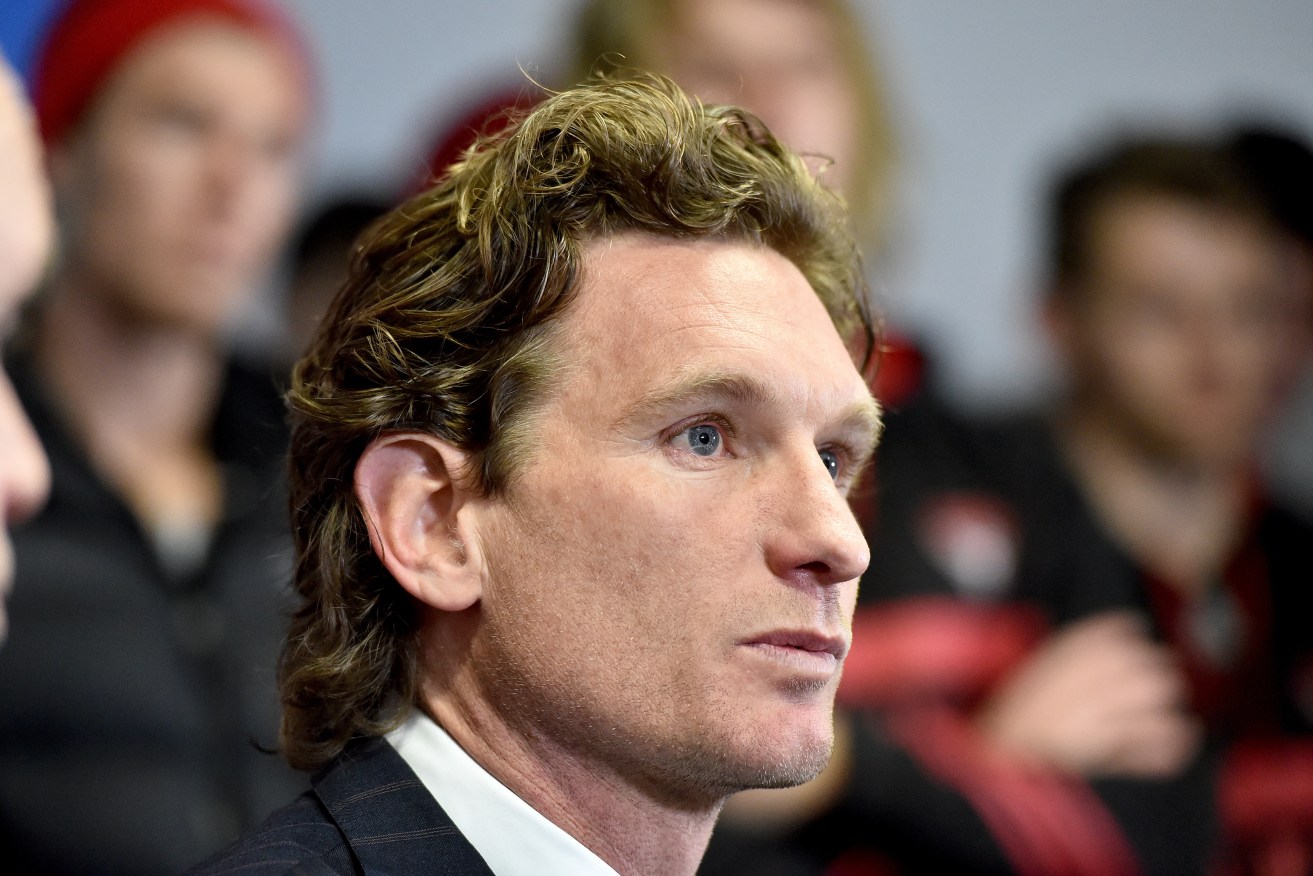Hird distances himself from doping regime
James Hird has written an account of the origins of the Essendon supplements scandal, distancing himself from the notorious injection regime that has seen 34 current and former players banned, including two Port Adelaide stars.

James Hird announcing his resignation as Essendon coach. Photo: Joe Castro / AAP
The former coach, who stepped down last year as the turmoil continued to engulf the club, has penned a column in Melbourne’s Herald Sun, distancing himself from the regime implemented by high performance manager Dean Robinson and the infamous sports scientist Stephen Dank.
“I’m often asked how these roles fitted into the structure of the football club,” writes Hird.
“The answer is that [Head of Football Paul] Hamilton was the head of the football department. Robinson reported to Hamilton, Dank reported to Robinson and the medical department reported to Robinson as well.
“[Club doctor] Bruce Reid had a direct line to Hamilton if he needed to communicate directly.
“I was responsible for the coaches and the player’s football performance. These were essentially discrete units where Hamilton and I were on the same level and reported independently and directly to the chief executive, Ian Robson.”
Hamilton was formerly an assistant at Adelaide under Neil Craig.
Hird writes that Essendon had a “sliding doors” moment when it hired Robinson and Dank, setting the club and players on the path to ruin.
The Court of Arbitration for sport this week upheld the World Anti-Doping Agency’s appeal against the AFL tribunal decision to clear 34 players of taking the banned substance thymosin-beta 4 while Hird was coach, handing 34 past and present players a 12-month ban from the sport.
Hird writes that Robinson and Dank were not the club’s first choices in 2011 to run what it thought would be a cutting edge supplements program.
He said the preferred candidate, working in the English Premier League, could not join Essendon until May 2012.
“Had we secured this preferred applicant then the experience of the Essendon Football Club and 34 young men would have been very different,” he said.
“Instead the sliding door we walked through introduced Essendon to the worlds of Dean Robinson and, at Robinson’s suggestion, Stephen Dank.”
Hird said he was comfortable with the supplements program if supplements were AFL and ASADA approved, that players would not be harmed and gave informed consent and that Reid gave final approval.
“The supplements program then, from my perspective, had sound logic, important goals, the people the club had engaged presented as credible and successful, the structure for the program was right and the protocol for decision-making and player welfare had integrity,” he said.
“It seems that what transpired was that the protocol we put in place was not always followed.”
“Importantly, to our knowledge at that time, this was the scope of the problem, because Dank had assured the club the supplements were compliant.
“He had even presented supporting evidence.”
Dank was later sacked, Robinson’s role scaled back and the supplements program modified so that only Dr Reid could administer injections.
-with AAP




